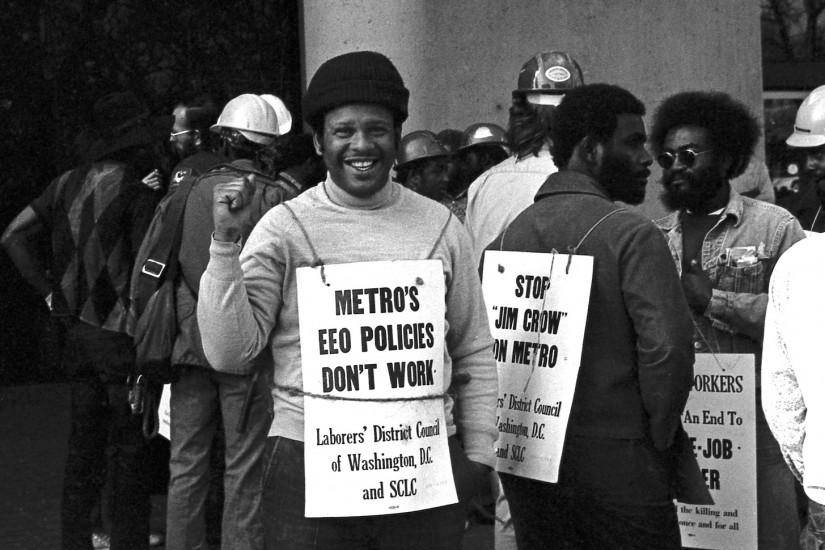You describe Title VII of the Civil Rights Act as the single biggest challenge to employers’ workplace power since the passage of the 1935 National Labor Relations Act. Why?
The National Labor Relations Act, or the Wagner Act, was a huge challenge to corporations. It provided a legal process through which workers can win a union and compel companies to negotiate a contract with them. In many ways, it was the answer to the late nineteenth and early twentieth century’s big labor question: how are we going to deal with the contradiction between the promise of democracy and the realities of industrial capitalism?
The Wagner Act was a compromise that excluded many women and people of color by excluding domestic service and agricultural jobs. This was one of the major limitations of the New Deal promise, but with the passage of the Civil Rights Act, all those workers who had been relegated to the margins of industrial capitalism suddenly had access to jobs in the core.
Title VII of the Civil Rights Act prohibited discrimination on the grounds of race, sex, color, religion, or national origin. The narrow door was suddenly open to everybody, and you see this great rush of women and people of color into unions. In 1960, only 18 percent of the nation’s union members were women, but by 1984, 34 percent of union members were women. By 1973, a full 44 percent of black men in the private sector had a union.
When I think of the working class in the 1970s, the first image that comes to my mind is Archie Bunker: the white, blue-collar, hard-hat wearing conservative union member that wants to beat up hippies. But you argue for a very different image of the working class in this period.
Today’s working class is majority women and disproportionately people of color. That change started in the 1970s.
On the show, All in the Family, Archie Bunker was a loading dock supervisor. In my book, I feature the story of Arthur Banks, an African American who was an actual loading dock supervisor at a department store in Washington DC. He surreptitiously supported the union, even though it could have gotten him fired, because he knew it would lift wages for everyone, supervisors included. So Archie Bunker is the image that has stayed with us, but Arthur Banks is the image I argue we should have.
